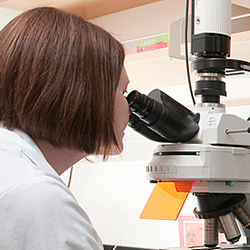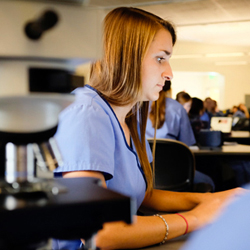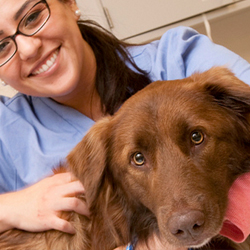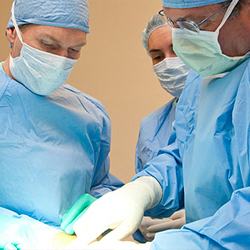Departments

Anatomy, Physiology & Cell Biology
The Department of Anatomy, Physiology & Cell Biology's mission is to emphasize programs with a strong correlation between structure and function and to focus on integration of cellular and molecular biology with the biology of cell populations organized as tissues, organs, organ systems and organisms. This emphasis includes an appreciation of the responses of cell populations and organisms to environmental quality and homeostatic challenge. Areas of excellence exist in pulmonary toxicology and in aquatic-ecotoxicology and form.
![]()
Department of Molecular Biosciences
The Department of Molecular Biosciences serves as the academic home for all nutritional, physiological chemistry, and pharmacologic and toxicologic programs of the School of Veterinary Medicine at UC Davis.
Our goal is to study fundamental biological processes and their perturbations by mutations, nutrition, drugs and xenobiotics and the application of these to the improvement of animal and human health. Eukaryotic systems will be investigated at the level of gene expression, in subcellular, cellular, tissue, organ and whole animal systems to elucidate the pathobiological mechanisms of diseases of multifactorial origin.
![]()
Department of Medicine and Epidemiology
Welcome to the web site for the Department of Medicine and Epidemiology. The discipline of medicine within veterinary medicine encompases the art and science of diagnosis and treatment of disease and maintenance of health for all species of animals, birds, reptiles, and fish except humans. Epidemiology is the discipline of science concerned with the study of factors determining and influencing frequency and distribution of disease, injury and other health events and the causes in a defined population, and with establishing programs to prevent and control the development and spread of disease.

Pathology, Microbiology & Immunology
The Department of Pathology, Microbiology and Immunology is one of six academic departments in the School of Veterinary Medicine; it provides a unique and critical linkage between the basic and clinical sciences. The mission of the department is the effective integration of the disciplines of immunology, microbiology (including bacteriology, parasitology and virology) and pathology (both anatomic and clinical) into the teaching, research, and service programs of the school and campus. Through this mission, the department promotes the understanding of causes and diagnosis of disease in animals and the mechanisms by which diseases develop at the organismal, cellular and molecular, and, increasingly, genetic levels. The correlated applied (translational) mission is to advance the use of morphologic, microbiologic, biochemical, genetic, and immunologic methods for diagnosis and prevention of disease.

Population Health & Reproduction
The Department of Population Health and Reproduction is an interdisciplinary department, comprised of faculty with expertise in a variety of academic and clinical fields whose common focus is on the population as the unit of scientific interest. The Department’s focus is on teaching and research programs dedicated to improving a safe and economical food supply from animal origins; the gathering and dissemination of information that can lead to enhanced animal and human health and enhanced animal production; and the management of natural resources for animal and public good.

Department of Surgical & Radiological Sciences
The mission of the Department of Surgical & Radiological Sciences is to provide education and leadership in the veterinary clinical disciplines embraced by the department, to facilitate research activities into diagnosis, pathogenesis, prevention, and treatment of diseases of animals, to provide veterinary services to the people of California, to nurture faculty development, to participate in the governance of the University, and to contribute actively to the development of the profession of veterinary medicine.

